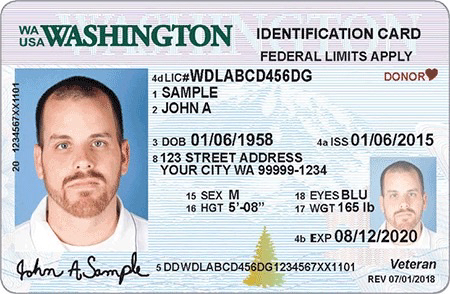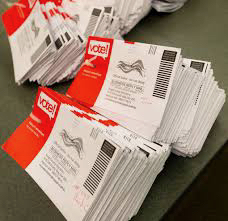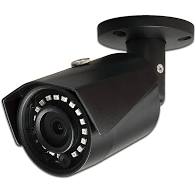
Redding’s Hardware – Gettysburg’s Largest Gun shop
To say this topic is controversial in the US is an understatement.
If you think that Americans should not have any means of defending themselves, then please stop reading.
Conversely, if you feel that any person should be able to carry any weapon at any time, you too, can stop reading.
This post is about “reasonable acceptable laws” or, put more bluntly, “common sense measures to reduce deaths.”
Following are 20 arguments I have heard against any additional federal governmental oversight of people regarding guns. Each statement is followed by a counter view in italics:
1. Argument Against More Governmental Restrictions:
“The Second Amendment says I have a right to bear arms and I am within my rights to do so. It is my right.”
Counter-Argument For Common Sense Laws to Save Lives:
“All of our rights defined in amendments to the Constitution have limits. Rights also come with personal responsibilities. The Supreme Court has ruled and approved limits on the 2nd Amendment such as prohibitions/limitations on ownership of certain weapons and guns being restricted from some locations. See Question 20 for more details on the Supreme Court and the Second Amendment.”
2. Against More Government Restrictions:
“Any restrictions or attemps to at all identify those who clearly should not have weapons will, by their very nature, impede law-abiding citizens from purchasing or possessing firearms“
For Common Sense Laws to Save Lives:
“Background checks can be accomplished in a matter of minutes. Waiting periods are a small price to pay to keep some people (Known terrorists, violent felons, domestic abusers, and certified “crazy” people) from easily obtaining a deadly weapon. It really is not much of an inconvenience at all. Most gun owners are already following these procedures. Only non-law-abiding persons need to fear background checks or “red flag” laws. If you are doing nothing wrong, you have nothing to fear.”
3. Against More Government Restrictions:
“Any restrictions at all is a slippery slope eventually leading to total loss of all guns held by any civilian.”
For Common Sense Laws to Save Lives:
“No elected official in the U.S. has ever said that they want to “take away all guns from all law abiding citizens”. If there were a slippery slope, then how does the U.S. have so many weapons available to civilians? Gun laws have been in place since the beginning of the country and yet, with the exception of some ethnic minorities such as blacks during slavery and the Jim Crow era and the Japanese during WW2, no sane law-abiding U.S. citizen has ever had the government take away their guns.”
4. Against More Government Restrictions:
“There is a criminal element that obtains and sells weapons clandestinely. Images of sales out of the trunk of a car are not made up. Another way to say this is, “If guns are outlawed, only outlaws will have guns.’”
For Common Sense Laws to Save Lives:
“Yes, criminals will always be able to find weapons. Additional common sense gun laws may make it harder for criminals to get weapons, but some will still be able to get them. Gun restrictions cannot solve the entire problem, but they can help. Like seat belts, they can save lives; not all lives, but some.”
5. Against More Government Restrictions:
“We don’t need any more laws. There are already laws on the books sufficient to protect us from those who could harm us. Committing a felony with a gun is clearly already against the law in all states.”
For Common Sense Laws to Save Lives:
“Current laws on the books in most states do make it a more serious crime to commit a felony using a gun. The problem in some states is enforcement. There is also a need for “red flag” laws which can help identify certified “crazy” people in advance. Although there is a national background check data base to identify known terrorists and felons, State laws and local compliance are very patchwork on background checks and there are loopholes such as gun shows which make it easy for anybody to buy a firearm. It is also easy to freely cross state lines. Existing laws, even if fully enforced, only impact the perpetrator “After” the crime has been committed, they do little to prevent additional deaths.”
6. Against More Government Restrictions:
“Some people have identified the cause of extreme gun violence as being video games and the glorification of those who use guns to kill in very graphic ways in the movies, on TV and in darker corners of the internet. The killer is often portrayed as a victim of who is seeking revenge. The argument is that elimination of these media would stop the violence.”
For Common Sense Laws to Save Lives:
“Media glorification of weapons (including guns) in video games or other media is certainly a sick sign of the times and we are wise not to spend money to partake of any of these. Often these games and videos promote a vigilante theme and portray the weapon users as aggrieved “Heroes” out for revenge. Many of these media efforts are aimed at young males. That’s where the money is. Any boycott of these media is of little consequence to those who are making money peddling this sick attitude. Censorship is also a possibility; it might reduce violence a little but there are problems enforcing this and it does raise other Constitutional concerns. Thinking that ending violent video games or movies would end or greatly reduce violence is naïve.”
7. Against More Government Restrictions:
“Without guns, we are all vulnerable to a foreign invasion.”
For Common Sense Laws to Save Lives:
While guns may be of help during a home invasion by similarly armed criminals, small arms would not be effective against armored vehicles or other coordinated military or police action. A current example is the Russian invasion of Ukraine. The deciding factor in modern warfare is not small arms but artillery, tanks, anti-tank & anti-aircraft weapons, manned aircraft, drones, missiles and electronic and digital warfare.”
8. Against More Government Restrictions:
“Without guns we are vulnerable to systematic genocide by an internal government like what happened in Nazi Germany and at other times and places around the world. Even right now in Myanmar the military is attacking Muslim minorities and others who disagree with the military takeover of that country. If these people had guns they would be able to resist. The same could happen here, the government could control people who would be unable to resist.”
For Common Sense Laws to Save Lives:
“There is a grain of truth in this argument. Autocrats like Vladimir Putin, Xi Jingping and Kim Jong-un do in fact restrict arms from their citizens as one means of controlling them. Where this argument falls down is the assumption that in the US “all guns” are going to be confiscated. This is just not true. The gun control laws proposed (such as red flag laws and improved background checks) would not impact sane law-abiding citizens. Also, there are those within our society who cannot protect themselves with guns: the elderly, children, and people with serious disabilities. The greatest “protection” citizens now have is not ready access to guns, but rather a stable democratic form of government which “we the people” control. Power within a democracy lies in the vote, not guns.”
9. Against More Government Restrictions:
“A good guy with a gun stops a bad guy with a gun.”
For Common Sense Laws to Save Lives:
“None of the proposed gun control measures would keep a “good guy” from owning or carrying a gun. There are antidotal stories about “good guys” saving others, but these are few in number. Even highly trained police officers have an extremely difficult time discerning when/when not to fire their weapons. The “good guy” is at a terrible disadvantage in that she or he does not want to injure innocent bystanders. The criminal/crazy person is not hampered by this thought. The “good guy” is also limited by the fact that police cannot immediately discern who is the “good guy” if they respond to a call. The police could easily see someone with a gun, and take action against the wrong person.”
10. Against More Government Restrictions:
“We can “harden” schools and have the teachers and staff all armed.”
For Common Sense Laws to Save Lives:
“While arming employees might work for some teachers and staff, it certainly would not work for all. Arming educators would increase the likelihood of accidental discharge and of course there are some students who should not have ready access to weapons. “Hardening” the schools, even if it were possible, would only move the problem to other locations. We cannot “harden” every playground, park, athletic or cultural venue.”
11. Against: More Government Restrictions:
“If parents brought up their children properly, we would not have a problem.”
For Common Sense Laws to Save Lives:
“Parents cannot always control their children and mental illness, or addiction, or gang membership can happen in any family.”
12. Against More Government Restrictions:
“Guns don’t kill people by themselves. No gun ever killed anyone without a person pulling the trigger.”
For Common Sense Laws to Save Lives:
“The gun control measures suggested are aimed at those “people” who should not have ready access to guns. Inanimate objects can only be harmful if misused by people. The proposed gun laws are analogous to controls on the use of automobiles. Just as some people cannot drive cars, some people should not have guns.”
13. Against More Government Restrictions:
“The 40,000 plus killed last year in the US by guns represents less that 1/10th of 1 % of the population.”
For Common Sense Laws to Save Lives:
Here is what the American Medical Journal reports:
“US homicide rates were 7.0 times higher than in other high-income countries, driven by a gun homicide rate that was 25.2 times higher. For 15- to 24-year-olds, the gun homicide rate in the United States was 49.0 times higher. Firearm-related suicide rates were 8.0 times higher in the United States, but the overall suicide rates were average. Unintentional firearm deaths were 6.2 times higher in the United States. The overall firearm death rate in the United States from all causes was 10.0 times higher. Ninety percent of women, 91% of children aged 0 to 14 years, 92% of youth aged 15 to 24 years, and 82% of all people killed by firearms were from the United States.”
14. Against More Government Restrictions:
“Suicides will occur with or without guns and, unlike vehicle suicides, gun suicides usually do not injure others.“
For Common Sense Laws to Save Lives:
“Certainly, someone who is set on suicide can kill themselves by other means but, if they are at high risk, why make it easier for them? With appropriate mental health they may be able to recover and not use guns to kill themselves or others. Red Flag laws could help here by giving individuals time to work out their problems before killing themselves. This is only a partial solution, but it could save some lives.”
15. Against More Government Restrictions:
“Most gun deaths are from handguns, not rifles, yet the media focuses on mass shootings and AR-15 type rifles in particular.”
For Common Sense Laws to Save Lives:
“Yes, most gun deaths are from handguns. Handgun deaths seem more predictable and are often associated with specific geographic areas. Handgun deaths are often gang, drug, suicide or domestic violence related. And yes, the media does focus on the more dramatic “mass shootings” that have become part of our National history: The University of Texas Tower; Columbine; The Amish School near Lancaster, PA; Sandy Hook Elementary; Margery Stoneman HS; Robb Elementary, Uvalde, Texas; and many more. The mass killings seem to be much more random and they also seem to be best addressed by comprehensive “Reg Flag” laws and background checks. In many cases the shooter either commits suicide or is killed by police so it is usually the case that the “why” is never known. AR-15s are a semi-automatic version of the military M-16 which was specifically designed as an assault weapon designed to use the 5.56 mm high velocity round that causes the most internal injuries on enemy soldiers. AR-15s are often used by mass shooters. It is light-weight, easy to use, and inflicts a tremendous amount of damage to the human body. This type of weapon was outlawed by Federal law in the past because of its capability to inflict wounds quickly on large numbers of people. Making this powerful weapon available to just anyone is reckless and unnecessary.”
16. Against More Government Restrictions:
“Rural needs are different than city needs, this goes for firearms also.”
For Common Sense Laws to Save Lives:
“Rural citizens may well have a greater need for firearms to protect themselves given the often-limited support available to them from law enforcement. None of the “Red Flag” or enhanced background check laws would adversely impact sane law-abiding rural citizens. Hunters would not be impacted by restrictions on AR-15s which fire a round designed to tumble upon impact, ruining internal organs. It is not a good hunting rifle.”
17. Against More Government Restrictions:
“Chicago has some of the strongest gun restrictions in the country, yet it also is one of the cities most subject to gun violence. Restrictions just don’t work.”
For Common Sense Laws to Save Lives:
“Without knowing the source of the guns used in crimes, it is impossible to know if local laws are effective. Americans are free to cross state lines at any time. Only “National” laws can limit interstate gun runners.”
18. Against More Government Restrictions:
“Today’s weapons (like the popular AR-15 type rifle) are essentially just modern versions of what at the time of the American Revolution was the most powerful personal weapon, the Kentucky Long Rifle.”
For Common Sense Laws to Save Lives:
“The hand-made (by a gunsmith) Kentucky or Pennsylvania “long rifle” was the most advanced readily available personal weapon at the time the Second Amendment was added to the Constitution in 1791. The rate of fire was about 2 rounds per minute for a highly trained marksman. The long rifle had an accurate range of about 200 yards. Americans used this rifle to their advantage first during the French and Indian War and later during the American Revolution. Snipers using these rifles could shoot enemy soldiers at a great distance. Currently semi-automatic weapons have magazines with 30 rounds of ammunition and can fire one round as fast as one can pull a trigger. Magazines can be changed quickly in a few seconds, even by an untrained user. An AR-15 (with its 5.56 mm high velocity round) is accurate from 500 -1000 yards. The politicians who wrote and approved the Second Amendment had no idea of the lethal capability of weapons readily available today in the United States.”
19. Against More Government Restrictions:
“They” want to take away my guns.”
For Common Sense Laws to Save Lives:
“This argument assumes that the reader/audience knows who “They” are. It is an example of drawing on the polarization within the US. There is not a coordinated effort to take guns away from sane law-abiding responsible adults. Gun control efforts are aimed at those people who should not have ready access to firearms: Terrorists, violent felons, children, domestic abusers, and severely mentally ill individuals. Gun control efforts also attempt to limit the amount of damage a crazy or terrorist individual can do (e.g., limits on the availability of assault type weapons.)”
20. Against More Government Restrictions:
“The Supreme Court has supported the Second Amendment. Their decision is final.”
Warning to Readers: This answer is very long and complicated.
For Common Sense Laws to Save Lives:
“The Supreme Court often changes its decisions over time. Additionally, Supreme Court Decisions are almost always complex. In a landmark 2008 split decision (5-4), The District of Columbia vs Heller, the Supreme Court reinforced the right of government to limit/specify what “arms” are protected under the Second Amendment.
This 2008 Supreme Court decision was highly publicized because it delinked the right of gun ownership from membership in a militia and it clarified the individual’s the right to own a gun to protect one’s home. The DC law that was challenged had restricted ownership of handguns in one’s home and this Supreme Court decision overturned that law.
The entire text of the Second Amendment is: “A well-regulated Militia, being necessary to the security of a free State, the right of the people to keep and bear Arms, shall not be infringed.”
One of the major controversies involves the Supreme Court’s decision to overlook the basic commonly understood English language meaning (both now, and also in 1891 when this amendment was ratified) of a restrictive clause. The Supreme Court decided to treat the restrictive clause, “A well-regulated Milia, being necessary for the security of a free State,” as unrelated to the rest of the sentence, “the right of the people to keep and bear Arms, shall not be infringed.” It is possible that a future Supreme Court could revisit this decision and re-link the right of the people to their participation in the well-regulated militia (Now called the National Guard). For now, the Supreme Court decision stands, but it is being questioned.
Left unresolved in the 2008 decision was the individual right to bear arms outside of the home.
The majority opinion in DC vs Heller was written by the late Justice Antonin Scalia. Most of the publicity around the decision focused on the delinking of the right to bear arms from membership in an organized militia (i.e. The National Guard). Not talked about so much is the very clear statement by Scalia that the Second Amendment is not unlimited. In this majority opinion Scalia goes on to say, “…nothing in our opinion should be taken to cast doubt on longstanding prohibitions on the possession of firearms by felons and the mentally ill, or laws forbidding the carrying of firearms in sensitive places such as schools and government buildings, or laws imposing conditions and qualifications on the commercial sale of arms.”
The Supreme Court clearly reinforced the authority of Government to regulate the sale of arms. In other words, governmental limits on which types of arms can be owned by individuals is clearly consistent with the Second Amendment right to bear arms.
The recent Supreme Court decision (2022) NY State Rifle and Pistol Assn. v Bruen overturned conceal carry laws in several states that imposed specific requirements that the individual prove a need for the conceal/carry permit. More or less, this opinion, written by Justice Clarence Thomas, clarified the right of individuals to protect themselves by owning and bearing arms, even outside of their homes. This same decision, however, also clearly reinforced the right of governments to designate certain areas as gun-free “Sensitive Places” such as courthouses, mass transportation systems, schools and private businesses (which are free to set their own requirements).”
Jim’s Take
I like to think of myself as open to “different” ideas. As this Blog’s title “Common Ground” infers, I am also a fan of reasonable compromise.
I do not, however, appreciate nor ascribe to “simple solutions” to complex issues. The “guns” issue is very complicated. It is also clearly a national problem/issue.
The question for most Americans is not whether there should be some limits on gun ownership/use. Clearly society needs some protection that only government can provide. There need to be governmental guardrails that give us all some degree of assurance and safety in our public places. At the same time, we can, and should, allow sane non-criminal adult citizens the ability to defend themselves and their families.
As with everything important, “The devil is in the details.” As many people have pointed out, we already have some limitations on the right to bear arms. Some of the relevant questions that we Americans as a people have yet to agree on include:
What weapons fall under the term “arms”?
What additional laws, if any, should be enacted?
Which current laws need to be enforced?
Is this basically a State issue or one that requires National Government involvement?
Who should not be allowed to have guns readily available to them?
Terrorists? Certified Mentally Ill? Convicted felons?
Domestic abusers? Young Children?
Where are guns allowed and where are they prohibited?
Schools? Court Rooms? Parks? Transportation Systems? Hospitals? Private businesses?
Under what circumstances should citizens be allowed to own/carry guns?
What “responsibilities” go with gun ownership?
Safety training? Gun Safes? Liability?
What happens when one citizen’s right to bear arms threatens another citizen’s unalienable right to life, liberty and the pursuit of happiness?
Please enter your thoughts on this issue by clicking on the word “Comments” below and then scroll down to the bottom to make your reply.







